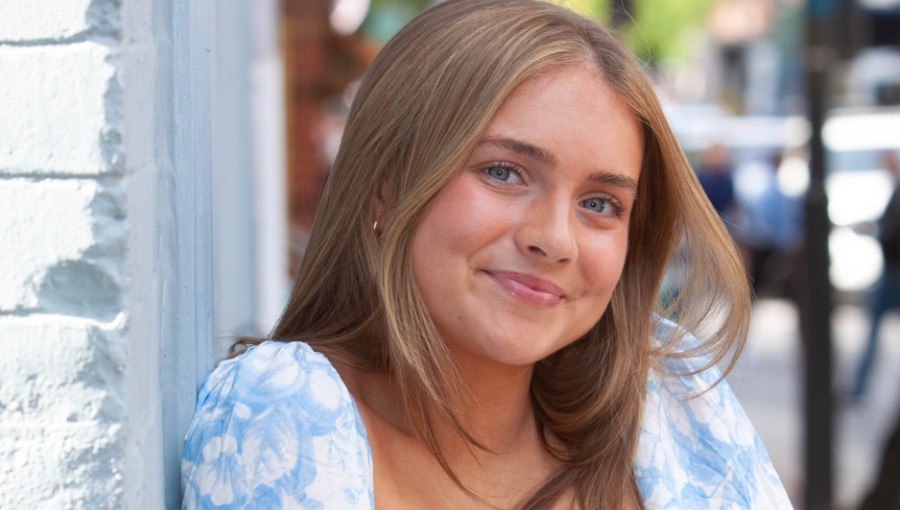Guarini Institute Organizes JCU Study Trip to Ukraine
The Guarini Institute for Public Affairs recently organized a study trip to Ukraine. A group of JCU students, along with Political Science professors Federigo Argentieri and Seth Jaffe, visited the city of Lviv in Western Ukraine and the Ukrainian Catholic University (UCU) from November 1st to 4th. During their stay, they attended four academic lectures on the Ukraine-Russia conflict and engaged in social activities with UCU students.
The first day began with a presentation of UCU by the Director of the International Academic Relations Department. Despite being a Catholic institution affiliated with the Greek Catholic church, UCU has a diverse student body; many students from other regions of Ukraine and with other religious affiliations attend UCU programs.
After the UCU presentation and a campus tour, students participated in the first academic lecture, “The US, Russia, and Ukraine,” by Professor Seth Jaffe, who focused on American foreign policy toward Russia, particularly in relation to the conflict in Eastern Ukraine. Jaffe reviewed the period from the end of the Cold War to the present, particularly under the Bush, Obama and Trump presidencies, and pointed out the differences and similarities in these administrations’ approaches. Particular attention was given to Putin’s reaction to US foreign policy in specific events like the Orange Revolution in Ukraine in 2004, Gadhafi’s assassination following the 2011 NATO intervention in Libya, and the 2012-13 civil society protests that took place in Moscow. As Professor Jaffe underlined, Kremlin foreign policy has been driven by the necessity to protect Russian interests, and Putin has viewed US foreign policy as a threat. This could explain Russia’s intervention in the 2016 US presidential elections with the consequent victory of Trump. In the final part of the lecture, Professor Jaffe continued the discussion on the current outlook of the US toward Russia, the relations between Trump and Putin, and the possible consequences of the US role in the ongoing Ukrainian conflict and the problematic 2014 Crimean annexation.
In the afternoon, the JCU group had a unique opportunity to meet a soldier who had returned from the frontline in Eastern Ukraine with updates on the ongoing conflict. Andriy Gergert was introduced by Reverend Petro Terlezkyy (UCU). Previously a veterinarian and now Chief of the 8th battalion of the Ukrainian volunteer army, Gergert has been on the frontline since 2014 when the first volunteer battalions were formed. He gave students an overview of the Euromaidan, or civil revolution in Ukraine, and Russia’s invasion of the country, explained the phenomena of volunteer battalions independent from the regular contract Ukrainian army, and gave an insight on the activity of his battalion. The 8th battalion is focused on deception, intelligence service, and searching for evidence of the presence of Russian troops in Eastern Ukraine.
According to Gergert, Russian troops are easily identified by the unique military communication equipment that other armies don’t use; such evidence is collected and sent to international organizations. Given that volunteer battalions are not officially recognized as part of the Ukrainian army, their soldiers are left without salaries, social benefits, or government financial support. Their activity is funded by individual donors and volunteers: one battalion has a monthly cost of around $30k. Gergert ensured that despite the corruption problem in the country and the lack of support, volunteer soldiers are highly motivated and patriotic, willing to fight to protect the unity and integrity of Ukrainian borders. Gergert showed frontline videos filmed by his battalion and shared stories from everyday life on the frontline.

JCU Professors Jaffe (second from left) and Argentieri (fourth from right) with students in Lviv, Ukraine
After Gergert’s presentation Rev. Terlezkyy shared his experience of helping the army. Together with UCU volunteers and partner organizations, Rev. Terlezkyy provided military hospitals with beds and medicine, organized fundraising concerts, built mobile laundry and shower trucks, and provided soldiers with binoculars and cameras for night vision.
On day two students discussed domestic reforms in Ukraine with Professor Andrew Rozhdestvensky (UCU). After having read a case study on the Ministry of Defense, JCU students were asked to evaluate the reforms of. Yuriy Husyev, Deputy Minister of Defense, and his team. Husyev found the Ministry of Defense in a state of high corruption and low efficiency. In fact, it was rather a bureaucratic institution not able to react quickly to the challenges of the military conflict – this is why in the first 3-6 months of the conflict the major support for the army came from volunteers, not from the Ministry. He implemented changes to internal communication and gained support of volunteers and reform activists from various professional backgrounds.
On the afternoon of November 2nd, Professor Federigo Argentieri (JCU) gave the last lecture, “The EU, NATO and Ukraine” JCU and UCU students, focusing on the roles that the European Union, NATO and other organizations (like the Organization for Security and Cooperation in Europe, OSCE) have had before and after the end of the Cold War. Professor Argentieri focused on the situation in Ukraine starting from the intervention of the OSCE in the 2004 Ukrainian elections, and the following elections in 2010 that brought Yanukovych to power and marked the beginning of the controversial connections to Russia.
To understand Russia’s intervention in Ukrainian politics and the invasion of Eastern Ukraine and Crimea, it is important to analyze agreements like the 1994 Budapest Conference where Ukraine traded its nuclear arsenal for the commitment of the US and Russia to ensure its national sovereignty and territorial integrity. It is also important to keep in mind the unofficial agreement between the US and Russia where former Soviet republics including Ukraine, would not become members of NATO. According to Professor Argentieri, Putin started being more interested in Ukraine’s relations to the West as a consequence of US foreign policy in Iraq and in the acceptance of the 2008 declaration of independence of Kosovo, which also encouraged Russia’s intervention in Georgia.
In particular, Professor Argentieri emphasized how the Kremlin has not been interested in Ukraine’s EU membership until 2007, and how the Russian invasion in Ukraine and involvement in the conflict in the Eastern part of the country is a clear sign of the Kremlin’s to keep Ukraine as far as possible from any further possible agreement with the US or the European Union.
After the lectures, JCU students got a chance to meet UCU students, learn about their student life activities, in particular, the projects of Student Government and Student Brotherhood. Together they discussed the current political situation in Ukraine, Europe and the US, exchanged opinions and learned about each other’s perspectives on different issues. In addition to meetings in the classroom, JCU students got to spend time with their Ukrainian colleagues in the city center. On Saturday, November 3rd students explored Lviv with Solomia Rozlutska, the Study Trip Coordinator from UCU, visited sights and museums in their free time, tried local cuisine, and learned more about Ukrainian culture and lifestyle.
(Clelia Casciola and Katya Umanets)





